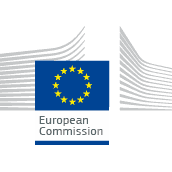
Improving scientific knowledge to strengthen the science-basis of management decisions under the Common Fisheries Policy
Deadline: Sep 19, 2023
CALL EXPIRED
CALL EXPIRED
Fisheries and Food
Animal Health and Welfare
Biodiversity
Marine and Coast
Maritime Affaires and Fisheries
Environment
Climate Sciences
Web
The main objective of this Call for Proposals is to promote the development and/or the strengthening of the scientific knowledge needed to support the science-basis for fisheries conservation and management measures.
Scope:The priorities related to this call are the reinforcement of policy-oriented fisheries science, the better use of the collected scientific data, the improved cooperation between scientists and the fisheries sector, and the contribution in supporting the EU scientific community in developing and maintaining the relevant expertise to provide high quality scientific advice.
Projects should focus on at least one of the themes listed below:
- Improve or update the available scientific knowledge to advise the European Commission on proposing new fisheries conservation and management measures or reviewing the existing ones within the CFP context, including its international dimension.
- Optimise the collection and use of samples and collected scientific data under the Data Collection Framework or under any other data collection or monitoring initiatives at national/regional or EU level.
- Adapt the scientific advice currently provided for the CFP to the upcoming challenges affecting fisheries management such as climate change, and related changes in ecosystems.
- Improve methodological aspects of the design, collection and/or management of the data collected that will benefit the scientific advisory process.
- Strengthen scientific knowledge to assess and monitor the impact of fisheries on the structure, function and dynamics of marine ecosystems, and their associated services.
- Increase understanding of stock structures, life histories, food webs and multi-species interactions.
- Increase understanding and operationalization of an ecosystem approach to fisheries management (EAFM) to further develop capacity to provide advice using environmental, social and economic information, including through quantitative analysis.
- Strengthen scientific and operational knowledge to monitor and assess the impact of fisheries on vulnerable and sensitive species with a view to identify biologically sensitive areas, hot-spots by-catch areas and mitigation measures to monitor and control mortalities.
- Support the EU scientific community, in developing and maintaining the relevant expertise to provide high quality scientific advice to inform fisheries management.
- Support the involvement of policy stakeholders and citizens in the provision of fisheries data, the process of the production of scientific advice, and the communication of scientific results.
- Increase monitoring and understanding on the impact of other human activities and threats to fisheries stocks and linked ecosystems.
Activities that can be funded (scope)
Selected projects can include for example the activities listed (non-exhaustive list) below:
- collection and processing of samples and/or data in the field falling outside the scope of national data collection programmes (e.g. environmental samples, biological samples, social and economic data,…),
- harmonise and/or improve protocols of data collection, handling and management to serve the scientific advisory process,
- trials (e.g. exploring methods for improving surveys, collection of data, monitoring methods, risk assessments,…),
- meta-analysis, data validation and/or data preparation to feed into models,
- modelling: development, improvement, operationalising, testing and/or validation of models (e.g. adding age error matrices, incorporating environmental, social and/or economic drivers, considering multispecies interactions, adjusting models to geographical areas,…),
- developing methodologies for stocks evaluations including refining of Stock assessment parameters, or including data-limited methods and those suitable providing advice on very rare sensitive species,
- expanding current databases or creating new databases and link with existing initiatives with the aim of improving data quality and serving scientific advice,
- developing new advice formats or frequencies.
In addition, projects should develop networking activities between EU scientists and/or with EU fishing industry (e.g. multidisciplinary analysis, workshops, benchmark meetings, stakeholders’ consultations, networking of existing samples, etc.).
Applicants should explain in the proposal the added-value of their projects in relation to similar actions implemented under national EMFAF Operational Programmes (shared management), e.g. Data Collection Frameworks (DCF) or monitoring programmes under the Marine Strategy Framework Directive and the EU Birds and Habitats Directive.
Expected Impact:The funded actions are expected to improve the knowledge available to the EU (and global) fisheries scientific community, thus directly improving the science-base for the conservation and management measures designed in the context of the CFP.
Applicants should describe in their proposals the concrete and measurable results within the duration of the project and their expected impacts, including indicators for the monitoring and measurement of the progress.
The results should be presented in a format comparable to the relevant EMFAF results indicators (KPI) (See Annex I of EMFAF Regulation 2021/1139) as per below list (only relevant indicators should be considered):
- CR 10 - Actions contributing to a good environmental status, including nature restoration, conservation, protection of ecosystems, biodiversity, animal health and welfare (number of actions)
- CR 12 - Effectiveness of the system for “collection, management and use of data” (scale: high, medium, low)
- CR 13 - Cooperation activities between stakeholders (number of actions)
- CR 21 - Datasets and advice made available (number)
- CR 22 - Usage of data and information platforms (number of page views).
Applicants should describe the main target fora in which their results should be considered to feed scientific advice processes for fisheries management (e.g. existing working groups of scientific bodies).
Public link: Only for registered users
 EC - European Maritime, Fisheries and Aquaculture Fund (EMFAF)
EC - European Maritime, Fisheries and Aquaculture Fund (EMFAF)
Please Log In to See This Section